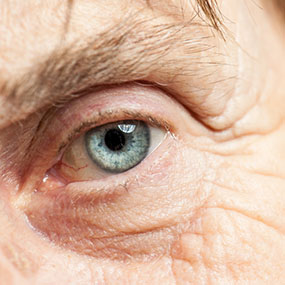
Do you feel sad and sorry when you hear your grandparents complaining about vision problems, difficulty in hearing, memory loss, etc.? Yes, we all feel the pain when we see our loved ones suffer.
As you age, you may develop various health problems and develop signs of cataracts; due to loss of immunity, oxidative stress and age related degenerative diseases. Yes, ageing is one such phase of life cycle where some or the other health issue exists. But, you can still make sure you make your suffering less as you age by following a healthy lifestyle right from childhood and throughout adulthood. In this article let us discuss one such major and common problem with old age individuals known as the cataract.
What Is Cataract?
Cataract is related to loss of vision. Cataracts eyes are cloudy areas in the lens inside the eye – which otherwise is normally clear. In a person with healthy vision, light passes through the lens to the back of the eye, so that the person can see a well- defined object. But, in case of a cataract patient, part of the lens will be clouded, which blocks some light from passing through thereby making the vision blurred and the person shall be unable to see a definitive image. As the cloudiness and opaqueness increases on the lens, the vision will continue to diminish simultaneously.
Now, let us see what are the causes of cataract and different types of cataract:
Causes and Different Types of Cataract?
-
Age related cataract
People above 60 years of age are usually affected by cataract.
-
Congenital Cataract (Childhood Cataract)
This may be congenital (right from birth), or affected shortly after birth. Cataract may also be diagnosed in children – these are sometimes referred to as developmental, infantile or juvenile cataracts.
-
Secondary Cataract
This develops as a result of other medical conditions, like diabetes, or exposure to toxic substances, certain drugs (such as corticosteroids or diuretics), ultraviolet light, or radiation.
-
Traumatic Cataract
This form refers to the cataract developed after an injury to the eye.
-
Crystalline Loss of Function
A specific type of protein (crystallins) begins to lose function as the eye ages. As the protein loses its function, small peptides made of 10 to 15 amino acids start forming and in turn accelerate cataract formation in the eye.
Even heavy exposure of eyes to sunlight also can be a cause. Other factors that can increase a person’s risk of developing cataracts include cigarette smoke, air pollution and heavy alcohol consumption.
So now you know the causes and types of cataract, but do you know how to identify if you’re suffering from cataract and what are cataract treatment options? Here are the symptoms of cataract.
Symptoms of Cataracts
Cataract develops slowly showing few symptoms until they noticeably block the light. When symptoms are present, they can include:
- Vision that is cloudy, blurry, foggy, or filmy
- Progressive nearsightedness in older people, often called “second sight”, because they may no longer need reading glasses.
- Changes in the way you see color, because of the discolored lens.
- Problem is driving at nights, such as glare from oncoming headlights.
- Glare problems during the day.
- Double vision (like a superimposed image) in one or two eyes.
- Sudden changes in the spectacle prescription.
Prevention of Cataract?
-
Regular Eye Check Ups
It is always advisable to have regular health check ups to make sure everything is fine or cure any illness at the first stage itself. In the similar way, you must have regular eye tests for early diagnosis of cataract or preventing cataracts.
-
Give up Smoking
Several studies reveal smoking to be one of the major causes of cataract and other eye-problems. This is based on the occurrence and identification of symptoms in smokers.
-
Nutrition
Eat plenty of fruits and vegetables which are rich in antioxidants, whole grains, unrefined carbohydrates, good quality fats like omega-3 fatty acids, and either plant sourced proteins or lean animal sourced proteins.
The findings by researchers at the Jean Mayer USDA Human Nutrition Research Center on Aging at Tufts University, USA suggest that vitamins and polyunsaturated fatty acids may affect the development of cataract.
Scientists from the Brigham & Women’s Hospital and Harvard Medical School, Boston found that women who consume vegetables or supplements rich in antioxidants like vitamin E, lutein and zeaxanthin seem to have better protection against developing cataracts.
-
Protective Sunglasses
You must wear U.V protective sunglasses to protect your eyes from radiation. U.V rays are also a major cause for eye damage.
-
Sleep
Make sure you get at least 7 hours of quality, continuous sleep every night.
-
Obesity
Obesity, significantly raises the risk of diabetes which in turn may cause cataract.
-
Diabetes
Make sure you have your blood sugar levels under control to prevent cataract and other serious health issues due to diabetes.
-
Exercise
Researchers reveal that exercise decreases the chance of age related eye problems.
Okay, you can sit back and relax now. You are now well equipped with information on the causes, symptoms and prevention of cataract. So use this information for preventing cataracts naturally.
Inspite of taking all the precautionary measures to prevent from cataract and cataract treatment without surgery, if you still fall a prey to cataract, then you can check for cataract treatments in my next article.
Till then, goodbye. Take care and wish you good health. Give me your insights and experiences on cataract.
Photo Courtesy: google.co.in

